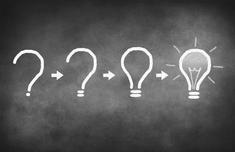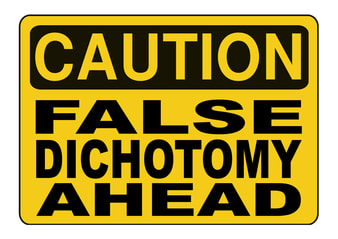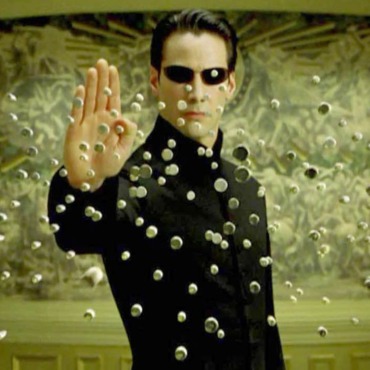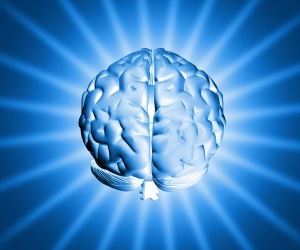Living in this world as an individual whose life is a set of linear experiences over time, we may fall into the trap of seeing things only from our own point of view, unable to see the other side of an argument because of our own lack of experience. This is compounded when we surround ourselves with others who have only had similar life experiences, resulting in an echo chamber that amplifies our own beliefs and reassures us that our positions are the correct ones.
A simple example of this can be shown any given day on social media, where we argue about concepts that have been neatly placed into dichotomies that force us to “pick a side.” Without a variety of life experiences, it becomes easy to pick one of the sides and then get swept into an argument where we disregard the experience of others, which may be different than our own.

In Buddism and other spiritual circles, they teach concept of non-duality, wherein it is proposed that “we are all one” and our individual experiences are merely transient waves in an ocean of one-ness. This makes sense from an omniscient standpoint… if we were to have the full list of experiences of everyone, then it would be much harder for us to ‘pick sides’ in many of the debates that draw our passion and our time into dividing us.
There are several ways that polarization is accomplished through psychological concepts such as neurolingustic programming and false dichotomy.
LABEL AND DISMISS

We all use labels to help us break complex issues down into simple concepts. Unfortunately, this simplification can result in invalid assumptions that limit our true understanding. When combined with our personal lack of ‘total experience,’ the technique of ‘label and dismiss’ is consciously used by those trying to win a dualistic debate with sound bytes which lead us to believe something without critical thinking. Take for example, these “negative” labels:

Conspiracy Theorist: Someone who questions an official narrative.
Anti-Vaxxer: Someone who questions the safety and efficacy of vaccines.
Climate Change Denier: Someone who questions the veracity of models that humans are causing the earth’s climate to shift.
Drug Dealer: Someone who dispenses plants deemed to be illegal
Quack: A naturopathic or homeopathic health practitioner
Thug: Black person who commits a violent crime
Terrorist: Brown person who commits a violent crime
Alt-Right Fascist: Republican
Liberal Snowflake: Democrat
Anti-Vaxxer: Someone who questions the safety and efficacy of vaccines.
Climate Change Denier: Someone who questions the veracity of models that humans are causing the earth’s climate to shift.
Drug Dealer: Someone who dispenses plants deemed to be illegal
Quack: A naturopathic or homeopathic health practitioner
Thug: Black person who commits a violent crime
Terrorist: Brown person who commits a violent crime
Alt-Right Fascist: Republican
Liberal Snowflake: Democrat

We also can see the use of positive labels to make other things look more appealing…
A covert government-connected group who can acquire funds “without regard to the provisions of law and regulations relating to the expenditure of government funds,” while allowing limited accounting for “confidential, extraordinary, or emergency”† spending: Central Intelligence Agency
A private corporation who prints money with no reserve or backing and lends it to the people of a country at interest: Federal Reserve Bank
Someone who fights disease primarily with drugs and surgery: Allopathic Doctor
Someone who dispenses legal psychoactive chemicals, patented by corporations: Pharmacist
White person who commits a violent crime: Lone Wolf
Republican: Conservative
Democrat: Progressive
† Quoted from The Central Intelligence Agency Act of 1949
A covert government-connected group who can acquire funds “without regard to the provisions of law and regulations relating to the expenditure of government funds,” while allowing limited accounting for “confidential, extraordinary, or emergency”† spending: Central Intelligence Agency
A private corporation who prints money with no reserve or backing and lends it to the people of a country at interest: Federal Reserve Bank
Someone who fights disease primarily with drugs and surgery: Allopathic Doctor
Someone who dispenses legal psychoactive chemicals, patented by corporations: Pharmacist
White person who commits a violent crime: Lone Wolf
Republican: Conservative
Democrat: Progressive
† Quoted from The Central Intelligence Agency Act of 1949

We could just as easily make inflammatory labels:
Central Intelligence Agency: Deep State
Someone who believes that all vaccines are safe and that we should all be forced to take them: Vaccine injury denier
Someone who rejects those who point out inconsistencies in official narratives: Conspiracy Denier
Pharmacist: Drug Dealer
White Person who commits a violent crime: Thug, Terrorist
Federal Reserve Bank: Value Counterfeiters
Democrat or Republican Representative: Puppet of the Oligarchy
Central Intelligence Agency: Deep State
Someone who believes that all vaccines are safe and that we should all be forced to take them: Vaccine injury denier
Someone who rejects those who point out inconsistencies in official narratives: Conspiracy Denier
Pharmacist: Drug Dealer
White Person who commits a violent crime: Thug, Terrorist
Federal Reserve Bank: Value Counterfeiters
Democrat or Republican Representative: Puppet of the Oligarchy
These examples are highly charged (words such as ‘denier’ ‘theorist’ and other negatively-connotated words), but it helps to realize when such labels are being used to either dismiss or credit someone.
THE STRAWMAN AND OTHER LOGICAL FALLACIES

When we begin to dig deeper into scenarios, we find that arguers might take something on which can all agree and turn it into something which can be discredited and then used to discredit or take attention away from the first statement. This is known as the strawman, and its one of many other logical fallacies used to dishonestly win debates. The strawman can be used to invalidly affirm or discredit a given position. Here are some examples:
Specific vaccines have been proven to be safe and effective in reducing specific diseases ~ All vaccines are safe and effective
Humans are polluting the earth with plastics, chemicals, animal waste, gene pool corruption, mercury, and excess carbon dioxide, and thus distressing the ecosystem. ~ The primary cause of global warming is humans.
Unscathed middle-eastern passports were found at the base of the collapsed twin towers ~ These individuals flew planes into the buildings
The collapse of the twin towers looked strikingly similar to a controlled demolition ~ Specific government and private officials issued a commands to implode the buildings
Scientists used the scientific method to determine an observation that can be reproduced in an experiment. ~ Scientists know more than non-scientists, and create an infallible record of truth on all topics.
We don’t know exactly how some ancient structures were built ~ We got help from aliens
We’ve never seen aliens ~ Aliens did not help build ancient structures
Humans are polluting the earth with plastics, chemicals, animal waste, gene pool corruption, mercury, and excess carbon dioxide, and thus distressing the ecosystem. ~ The primary cause of global warming is humans.
Unscathed middle-eastern passports were found at the base of the collapsed twin towers ~ These individuals flew planes into the buildings
The collapse of the twin towers looked strikingly similar to a controlled demolition ~ Specific government and private officials issued a commands to implode the buildings
Scientists used the scientific method to determine an observation that can be reproduced in an experiment. ~ Scientists know more than non-scientists, and create an infallible record of truth on all topics.
We don’t know exactly how some ancient structures were built ~ We got help from aliens
We’ve never seen aliens ~ Aliens did not help build ancient structures
THE RISE OF SCIENTISM
“Scientism is a term generally used to describe the cosmetic application of science in unwarranted situations not covered by the scientific method.” ~Wikipedia

With science as the modern day dogma, individuals have come to believe that we can use the scientific method to find truth, and in some cases, it is the only way to find truth. In reality, the scientific method never claims to find truth; rather, is a set of tools and procedures to be used to recreate certain conditions in an attempt to reliably reproduce behavior and therefore conclude (to the best of our understanding and up to be refuted as more evidence emerges) how something works. In the case of scientific inquiry, we start with a set of assumptions which are assumed to be true, followed by a procedure and logic to convert these assumptions into results.
The downside to this is when we mis-apply the scientific method and try to use it as a proof for truth. This may work in some cases, but the limitations become apparent when we realize that the scientific method ALWAYS relies on assumptions, and when the assumptions are wrong, then the results are likely wrong as well. Many of these scenarios fall under the strawman, and the rest fall under the general idea that ‘some questions have no answers’ – a concept that is hard for many to believe.
TRUTH CAN ONLY BE FOUND IN THE PRESENT
We can spend years and years looking into the provided information regarding some of the most impactful events in our history, from the assassination of JFK to the incidents on 9-11 to the various mass shootings that seem to occur on a regular basis, but unless we were there (and sometimes even if we were there), it’s impossible for us to determine what really happened without using assumptions. We must take extra care as to what we allow into our assumptions when deciding to choose a side. If a tree falls in the forest and nobody is there, does it make a sound? Some might assume that it does based on their experience, but some will say that it doesn’t because it is only the perception of something which makes it real. The latter has actually been proven on some level with the “Double Slit Experiment” used by quantum physicists to understand the nature of our reality on the physical plane.
We may take this a step further to conclude that the nature of our reality is based on the belief system of its participants. Therefore, if the majority of the population does not believe in aliens, then aliens will not appear. Some spiritual circles explain this as “the law of confusion,” wherein, our version of physical reality has a prime directive of “free will.” So, if aliens were to show up to those who don’t believe in them, or, we were to remember every past incarnation we’ve had through our eternal soul, then this would violate the free will to believe that there are no aliens or that this physical incarnation is all there is. This would discredit our current physical existence and prevent us from learning from it.
Instead, the mystery must endure so that we may learn the lessons we came here to learn on our own without truths that would prevent us from reaching our own conclusions. It would be like a professor who wrote the term papers and provided the test answers for his students — the students wouldn’t learn anything through their own discovery or experience, and therefore the class would be pointless.
“I’ll believe it when I see it.” ~Skeptic
“You’ll see it when you believe it.” ~Mystic
“You’ll see it when you believe it.” ~Mystic
EVERYTHING IS A POSSIBILITY WITH A PROBABILITY BASED ON ASSUMPTIONS
When we look at the vastness of our universe and even our planet, it’s safe to say that if you can think of it, then on some level or dimension, it can happen (or has happened). The reality is that much of it seems to be very unlikely to happen, based on the probability. That said, things with a low assigned probability happen all the time. How do we determine probability? This is the catch – everyone will assign a different probability based on their own experience and limitations. In the end, the assigned probability has little to do with reality, but it has everything to do with belief.







